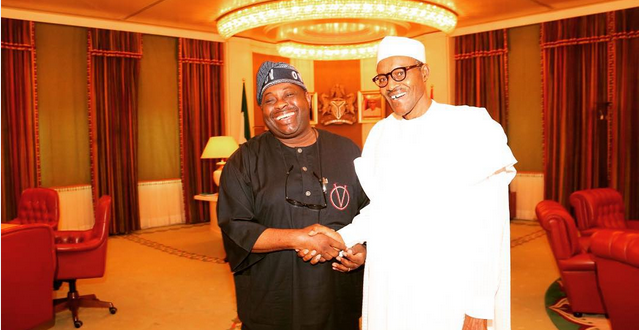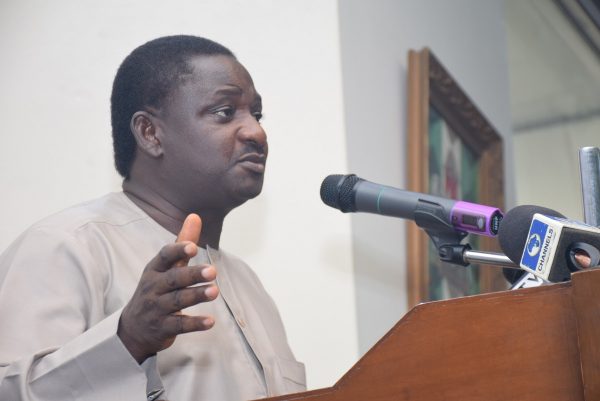Narratives of hatred and violence are similar all over the world. Take for instance Hitler’s Nazis. Jews were subhuman and were comparable only to maggots, lice and rats, the narrative went. In pre and post-President Juvenal Habyarimana of Rwanda’s murder in April 1994, (the Falcon 50 aircraft conveying him and Burundi’s President, Cyprien Ntaryamira, as well as twelve presidential aides, was shot down) the narrative was not dissimilar.
Two surface-to-air missiles had been shot at Habyarimana’s jet as it made to land at the Kigali airport. Hutus christened their ethnic neighbours – the Tutsis, with whom they had been living even before the Belgian colonists arrived the state capital, Kigali in 1916 – with the highly connotative tag of cockroaches.
These connotations and narratives make infliction of violence against the other person to seem less inhumane. The narratives are also always a precursor to a psychological feeling of collective insouciance to horrors which is the first feeling by those who inflict violence against the other person. Then comes dehumanization and gradually, genocide and war.
In a little over a hundred days, this grim dehumanization in Rwanda had harvested its atrocious grains as 800 Tutsis were slaughtered at the drop of a hat. A regime of systematic rape was also widely inflicted on Tutsis, rape wielded and used as a weapon of war. It was estimated that a number ranging from 250,000 and 500,000 women were gang-raped and murdered within this short period. The murder spread with a baffling speed and brutality. In the midst of this horror, the Hutu-led rag-tag government and extreme Hutu nationalists encouraged Hutu neighbours to slaughter their Tutsi neighbours for incentives. It was the heaviest casualty in a jiffy in human history. Today, Rwanda parades a memento of charred, cracked skulls which are pockmarked with holes from gun injuries, right there inside its museum. It is a testament to a people’s grisly desire to reconnect with the violence, horror and savagery of a previous human age when life was nasty, brutish and short. Humanity was deeply savaged and wounded in Rwanda.
Advertisement
In two instances under President Muhammadu Buhari, Nigeria had attempted to shuttle towards Kigali. The first was last year when Independent Peoples of Biafra, (IPOB) led by that seemingly demented youth, Nnamdi Kanu, promoted the narrative of war and dismemberment, the take worsened by a saber-rattling narrative from a government which was apparently prosecuting a 2015 vendetta founded on its scant electoral fortune in the South East. The second instance is the consistent Hutu-type slaughtering of their victims by Fulani herdsmen, culminating in the genocidal murders perpetrated in Benue State some days ago.
Only those who have visual and analytical challenges would not see that Nigeria is heading towards this brink of blood. Even Rauf Aregbesola, assailed on all fronts by the worsening plight of civil servants in his Osun State, couldn’t allow his governmental impotence blur his ability to see this impending bloodshed. Nigeria is at the precipice, he had shouted out recently. His leader, Bola Tinubu, at a Daily Trust Dialogue in Abuja, also took a prognosis of the deepening slide and concluded that Nigeria was fast becoming a cruel playground, a jungle, if you like. Whether President Muhammadu Buhari sees this descent into the abyss is yet a conjecture. His apparently uncoordinated attempt to employ placebo to heal this fast festering national sore doesn’t look like an appreciation of the crisis at hand. He had set up a 10-member committee led by Vice President Yemi Osinbajo to end the atrocious murders committed by his Fulani kinsmen on Thursday.
Those who are privy to build-ups to wars say that war doesn’t just happen; it is the culmination of several harmless and innocuous events. At the tip of our noses here, the Nigerian civil war had been prefaced by the 1966 pogrom and massacre of Igbo in the North and the justification of the Araba by the military barons of Hausa/Fulani descent at the time. Those who understand the architecture of war claim that today, they see vultures hovering in the Nigerian sky, no thanks to leadership complicity in the current atmosphere of violence in the country.
Advertisement
In the above-painted events – Nazi Germany and Rwanda – the narratives preceding the genocide were similar. They were divisive, hate-laced, bloodshed-full narratives which were founded on a mistreatment of others and rationalizations of the maltreatment of the other person. As it happened with President Pasteur Bizimungu, who was jailed on charges of inciting ethnic violence in the immediate period of seeking peace in Rwanda aftermath Habyarimana’s killing, there is also an overall speculation of ethnic abetment of blood spillage by the Nigerian leadership. Even though on the superficial, the Nigerian rulers, who are basically Hausa/Fulani, claim that they are appalled by the genocidal killings by Fulani nomads, there is nothing concrete that has been done to abate the nuisance and halt this gratuitous journey to Kigali. Emir Lamido Sanusi, a Fulani himself, ostensibly to justify the wanton killing of the herdsmen, claimed that 800 of the nomads had earlier been killed in Taraba last year. His cant was disclaimed hours after by the Christian Association of Nigeria (CAN), Taraba Chapter. Apparently to water down the heavy artillery of criticisms against President Buhari who had been known for years to be the patron of Miyetti Allah – the umbrella organization of the herdsmen – and without any disclaimer of such by him in the last two years or so, Sanusi claimed that he and the Sultan of Sokoto were patrons of the murderously violent group.
One of the harmless and innocuous triggers of war is a thorough dehumanization of the other person. Miyetti Allah has been doing this to our humanity as Nigerians in an unprecedented fashion since President Buhari took over the reins of office. Many who didn’t know of the group hitherto did through the shameless and no-holds-barred provocation of our collective humanity. Their gratuitous derring-do is atrocious without compare. They told a properly constituted parliament representing the people of Benue State that its laws would not be obeyed by them. They told the governor, elected by the people of Benue, to go and jump inside the Benue River as they would not budge. They rationalize the rapacious murders of their bloodsucking ilk and walk the streets unperturbed and no artery is ruptured. The police keep mute; President Buhari sleeps comfy thereafter. It is only in Nigeria that a vicarious witness to and abetter of genocide like the Miyetti Allah would be allowed to walk free.
And Buhari calls the supposed elders of Benue to a meeting at the Aso Rock Villa. Many Nigerians were pleasantly shocked that he did this. The Buhari they know is one who keeps frighteningly silly calm in the face of turbulent storm. Many who had read this writer’s piece last week which deplored his worrying silence in the face of these murders had thought that the President would use the opportunity to give his murderous kinsmen the back of his tongue. Alas, the President didn’t surprise. He simply matched, like a soldier that he was, inside his ancient cocoon of sanctimony. “I ask you in the name of God to accommodate your countrymen,” was all the President could volunteer to the visiting Benue elders. Nothing like “I condemn these killings with every fibre in my being” came from the mouth of our Almighty President. Please conduct a content analysis of Buhari’s speech at the event. His tilt towards the murderers, though veiled by an “I am just as worried and concerned with the situation,” was ominously laced with the poisonous liquid of favoritism.
Who exactly are the “countrymen”? And why do they need accommodation? Accommodate those who gruesomely murdered and are still murdering a people who were magnanimous enough to allow them graze on their land? Accommodate those whose farms destroyed hectares of yam farmlands, hacked fathers, murders, children in a horrendous Hutu-type killing as this? In any case, apology precedes forgiveness. Have these murderous Fulani sought apologies for their savagery? This brought this writer in remembrance of Father Michael Lapsley, South African Anglican priest and social justice activist who was parcel-bombed in 1990. It happened three months after then ANC leader, Nelson Mandela, was released from prison. Dispatched a letter bomb by the Civil Cooperation Bureau, an underground outfit of the apartheid security forces, hidden inside two religious magazines, the blast shattered Lapsley’s two hands and one of his eyes was seriously burnt. Invited to the Truth and Reconciliation Committee for his testimony, Lapsley said even though there was an ambience of national apology for the horrendous acts of apartheid, he had forgiven those who inflicted that horror on him but whenever he looked at the spincers that now made up his hands, he could not but remember apartheid’s atrocious attack. Has Buhari apologized on behalf of his murderous kinsmen or has the Fulani nation demonstrated enough sobriety? Till date, neither he, nor Atiku Abubakar, nor any of the Fulani power barons, has apologized to the people of Benue. So who should accommodate whom? As a measure to this bias, why would the Buhari government proscribe IPOB but the President has never verbalized a condemnation of his terrorist brethren who are a confirmed menace to individual liberty? Comparatively how many people has IPOB killed?
Advertisement
The beginning of a stoppage of this collective travel on the road to Kigali is for President Buhari to apologize to Benue people for the killings by his Fulani brothers and condemn their actions. Thereafter, he should convoke an ethnic-related meeting to trash out the issues involved. We grew up to know Fulani nomads as our friends and their wives selling nunu, fura and wara, cow milk products, to us. Cattle business is essential to Nigerians and as such, we cannot afford to live as enemies of Fulani herders. Enmity came between us when they became terrorists. These are issues that deserve to be trashed out.







